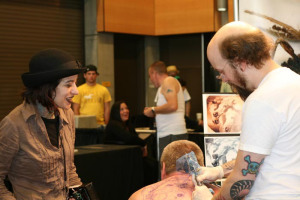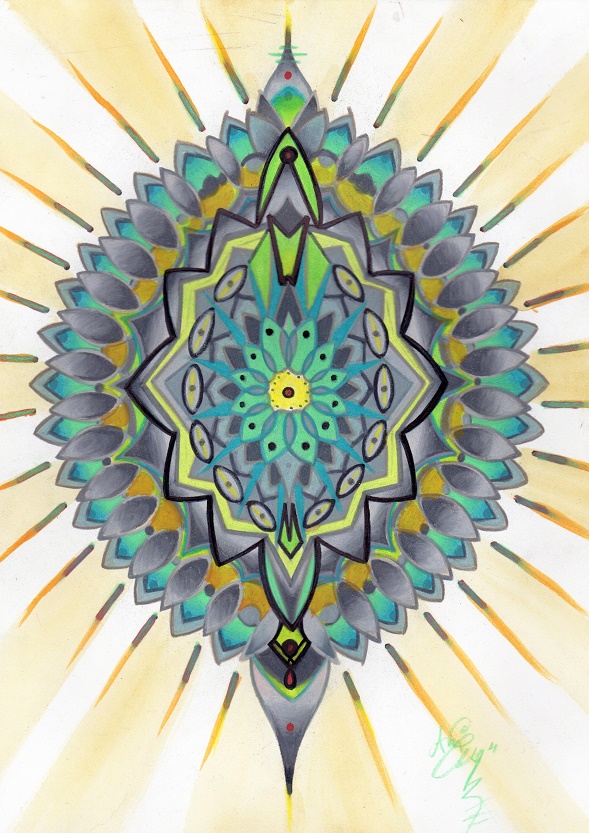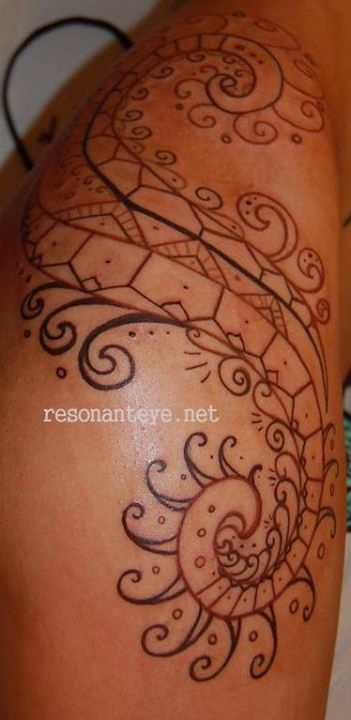How to choose a tattoo design when you're completely clueless
- In Tattoo Advice, you,
click through for the full article!
click through for the full article!
Added a better illustration of the tinted window effect, and added a video interview I found that I liked. She reminds me of me, back when I started, except she’s better-looking.
 I was having a conversation with someone who mentioned that they tried to keep artists at their shop from “stealing” clients from the shop, or each other. It really disturbed me, and here are a few reasons why (I hate writing in list format)
I was having a conversation with someone who mentioned that they tried to keep artists at their shop from “stealing” clients from the shop, or each other. It really disturbed me, and here are a few reasons why (I hate writing in list format)
lots of first-timers come in around the holidays. here’s your handy guide to getting tattooed!

mandala
I want to talk a little about why I paint and work with mandorlas rather than mandalas.
A mandala is a circular pattern, sometimes used ritually, which is built on radial symmetry. Each section of a mandala will be the same, drawing the eye into the center. The eye moves into the middle distance, being drawn past the paper or surface and off into what it perceives as a distant center. This is subconscious and happens because of the radial symmetry. We’re accustomed to seeing lines of perspective radiating from the distant horizon in art, so our eye interprets the center of a mandala as being far away (even if the artist has used every means to make it come forward at us, visually).
I think this is all fine and dandy. But-

mandorla
Mathematically speaking, a mandala is based on the circle, a single-edged shape. They are often meant to represent wholeness or unity. A triangle has three edges, a square four, and so on. Each of these shapes, symbolically speaking, have their own meaning- their own particular use. For example, the pentagram has been used as a symbol for humanity. Arms, legs, head- making a five-pointed star. The symbolism of triangles with fertility (mother, father, child) or some kind of trinity of gods, is common. A square is often used to represent a church, an institution, the law. The circle, used as it is to represent oneness (since it is a shape constructed of one line) is well known among many religious traditions.
The mandorla? It’s really only used as a backdrop. As a containing symbol for other objects. I think, though, that it can stand on its own. It’s less often used, less the subject of an image, than a circle or a triangle. Hell, even seven-pointed stars are more common than a two-sided shape. Why is this?
This is relevant all over again.
 There are a lot of great books on art out there, and I’m bound to miss a lot in my list. These are just books I have found incredibly helpful in my work, and which I refer to often.
There are a lot of great books on art out there, and I’m bound to miss a lot in my list. These are just books I have found incredibly helpful in my work, and which I refer to often.
These are not books of reference images (although I did come up in the time before google images took over, and every shop had its own reference library on site…I still can’t part with all those books!)
These are, instead, books about art in general, about art techniques, or about being an artist that I think apply very well to tattooing. If you have favorites that I do not list, please add a comment and link me to them! I read voraciously and love to find new sources of knowledge.
At least a few of these are free on kindle/ebooks, most are cheap, one or two are pricey, all are available and not rare.
An artist is not paid for his labor but for his vision.
To say to the painter that Nature is to be taken as she is, is to say to the player that he may sit on the piano.
~J. M. Whistler

I’ve been tattooing for a long time and I’ve worked on every conceivable shade of human skin. I’ve noticed that the most important thing isn’t usually how dark or light someone is (although that matters when you discuss tonal value and contrast) but the hue of a person, the underlying warmth or coolness of their skin.
Skin color is created by melanin, a pigment found in the upper layer of the epidermis. Tattoos lie beneath this layer, in the area between the epidermis and dermis. This placement of the ink prevents it from being shed with dead cells, by the top layer, and by being dispersed into the capillaries, in the bottom layer.
Since the ink itself lies beneath the epidermal melanin, looking at a tattoo is like looking through a tinted window. Except for albinos, everyone on earth has melanin in this skin layer. Some will have a ruddy skin tone, some a cold tone to their skin. Some will be dark, some light. Some freckled, and some smoothly pigmented.
Taking all of this into account when designing a tattoo is important. Tattoo ink is not opaque, but translucent, so you see through one tinted window, then through the ink itself. More than one factor has to be taken into account to make a great tattoo on uneven or darker skin tones.
I want people to know and see my work, that is why I do it. yet a part of me fears people, being known, shaking a hand. I seek eyes on my work but I fear the people who own the eyes.
why? why are people frightening?
I love the people I have known. I’ve only met a few people who are fearsome. most are kind, nervous, friendly, excited. some are hilarious, supportive, witty, swift.
why be afraid of it? it’s not fame. it’s some other thing I’m seeking. fame would be truly terrifying and also, I don’t think I have the talent required, both in my work and in my self.
some do get famous with less, but I don’t admire that. I would like to admire myself.
I want everyone to see my work. and then I want to curl into a small, invisible ball and roll away.
the internet is made of eyes. yet you are people, and when I remember that, I’m afraid. but I know many of you and you’re wonderful people who have given me no reason to fear. what is this, then? where does it come from?
I don’t know the answers. why would I?
This is a unique website which will require a more modern browser to work!
Please upgrade today!